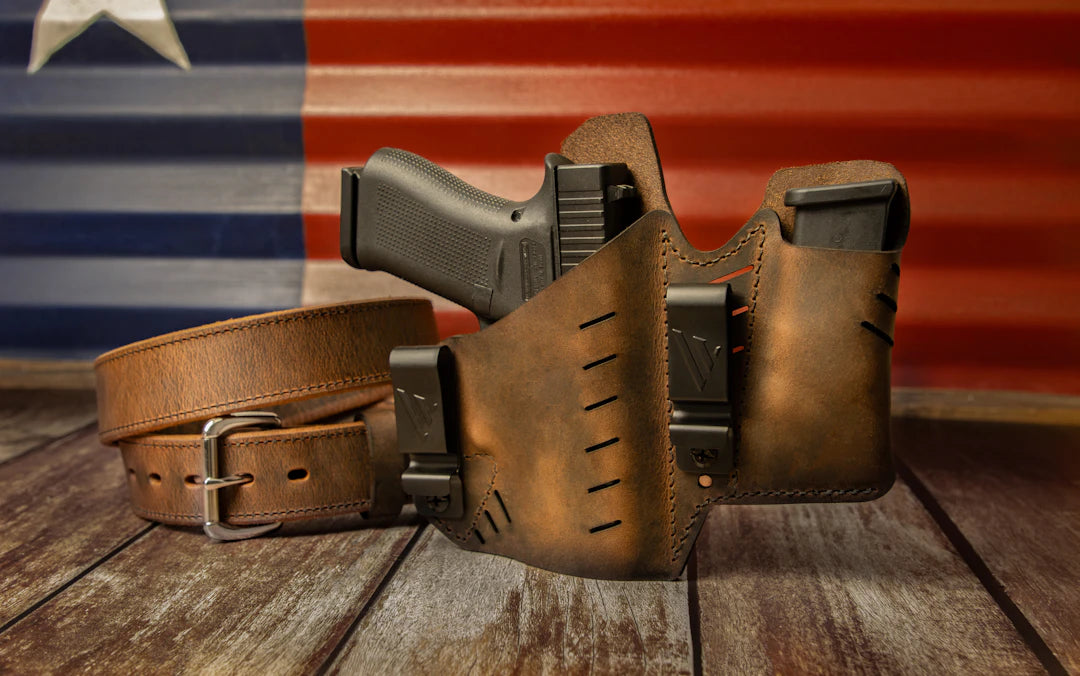Frequently Asked Questions
1. What is the importance of finding the right holster position?
2. What factors should I consider before adjusting my holster position?
3. What types of holsters are commonly used?
4. How can I assess the accessibility of my holster placement?
5. Why should I consider using a Narcan Carrier with my holster?
Finding the perfect holster position can greatly improve your carrying experience. Whether you’re an everyday user or an enthusiast, the right placement of your holster is vital for comfort and accessibility. In this blog post, we’ll dive deep into how to adjust your holster position for maximum comfort. We will also touch upon considerations such as the type of holster you use, which can include brands like Safariland, and the necessity of accessory carriers like a Narcan Carrier. Let's explore the factors that contribute to creating a seamless and enjoyable carrying experience.
Understanding Your Needs
Before adjusting your holster position, consider your specific needs and lifestyle. Ask yourself the following questions:
- What activities will you be doing while carrying?
- How long will you be wearing the holster?
- What type of clothing will you be wearing?
Your answers will guide you in selecting the best holster position. For instance, if you're active throughout the day, a more comfortable position might be necessary to allow for movement without sacrificing accessibility.
Types of Holsters
Firstly, let's explore the types of holsters available. Each type provides different comfort levels and accessibility options:
Inside-the-Waistband (IWB) Holsters
IWB holsters are designed to fit inside the waistband of your pants. They provide excellent concealment but may require specific adjustments for comfort. Here are some tips for wearing an IWB holster:
- Place the holster in the small of your back, side, or at the front for various comfort levels.
- Experiment with the cant (angle) of the holster to see which position works best for you.
- Ensure the holster is not digging into your skin or causing excessive pressure.
Outside-the-Waistband (OWB) Holsters
OWB holsters sit on the outside of your belt, allowing for quicker access to your weapon. They tend to be more comfortable for long-term wear, especially for those who spend most of their day standing or walking. Here are some points to consider when adjusting an OWB holster:
- Position the holster at your hip to maintain a natural draw.
- Adjust the height of the holster based on your belt line and pants style.
- Try using a retention strap if you're worried about accessibility versus security.
Finding the Right Spot
Once you've identified the type of holster that suits your needs, it’s time to find the right spot for maximum comfort. Here are some tips to help you adjust your holster position effectively:
Experimentation is Key
Don’t be afraid to play around with different positions until you find one that works best for your body type and lifestyle:
- Start with the holster on your dominant side, then try moving it to your non-dominant side.
- Adjust the position forward or backward along your waistband until you feel a comfortable angle for drawing.
Assessing Accessibility
Your holster should allow you to access your firearm easily and discreetly. Here's how to evaluate the accessibility of your holster placement:
- Practice drawing from the holster while sitting and standing.
- Make sure that your garment doesn’t impede your ability to access your weapon.
Combining Holsters with Accessories
When carrying a holster, consider the benefits of additional accessories, such as a Narcan Carrier. Having a Narcan Carrier attached alongside your holster can provide a critical advantage in emergency situations.
Why You Should Consider a Narcan Carrier
The Narcan Carrier is designed to store Naloxone, an emergency treatment for opioid overdoses. It’s compact and complements various holsters seamlessly. Here’s how to integrate a Narcan Carrier into your setup:
- Position it near your holster for quick access in emergencies.
- Choose a location that doesn’t interfere with the draw of your firearm.
Clothing Choices Impact Comfort
Your clothing can significantly affect the comfort of your holster position. It may not seem like a big issue, but certain styles, fabrics, and fits can change the game:
Choose the Right Fit
Wearing pants that fit well around the waist is crucial. Here are some considerations:
- Avoid overly tight-fitting clothes that can create discomfort with a holster.
- Opt for stretchy materials that move with you while providing enough support.
- Consider wearing a belt that is sturdy enough to support the weight of your holstered firearm plus any additional carriers.
Layer Strategically
When dressing for the day, think about your layers:
- Wearing an undershirt can reduce friction between your skin and holster.
- Longer shirts can help conceal your holster while giving you more freedom of movement.
Regular Adjustment and Care
Just because you find a comfortable position now doesn’t mean it will always remain so. Make it a habit to regularly assess your setup and adjust as necessary:
- Revisit your holster positioning after long periods of use.
- Check for wear and tear on both your holster and accessories.
The Future of Holster Comfort
Innovation is ever-present in the world of holsters. New designs and materials continue to revolutionize how we think about comfort and accessibility. Brands like Safariland are at the forefront of this market, constantly pushing the envelope. As the industry develops, so should your approach to comfort. Staying informed will ensure you're not only comfortable but also prepared for whatever challenges your day may bring.
Final Thoughts
Adjusting your holster position for maximum comfort isn't a one-size-fits-all endeavor. It requires understanding your needs, trying different types, and combining accessories that enhance your overall experience. Remember, your comfort directly impacts your effectiveness and peace of mind while carrying. So, take the time to experiment and find what works best for you to create a secure and enjoyable carrying experience.

